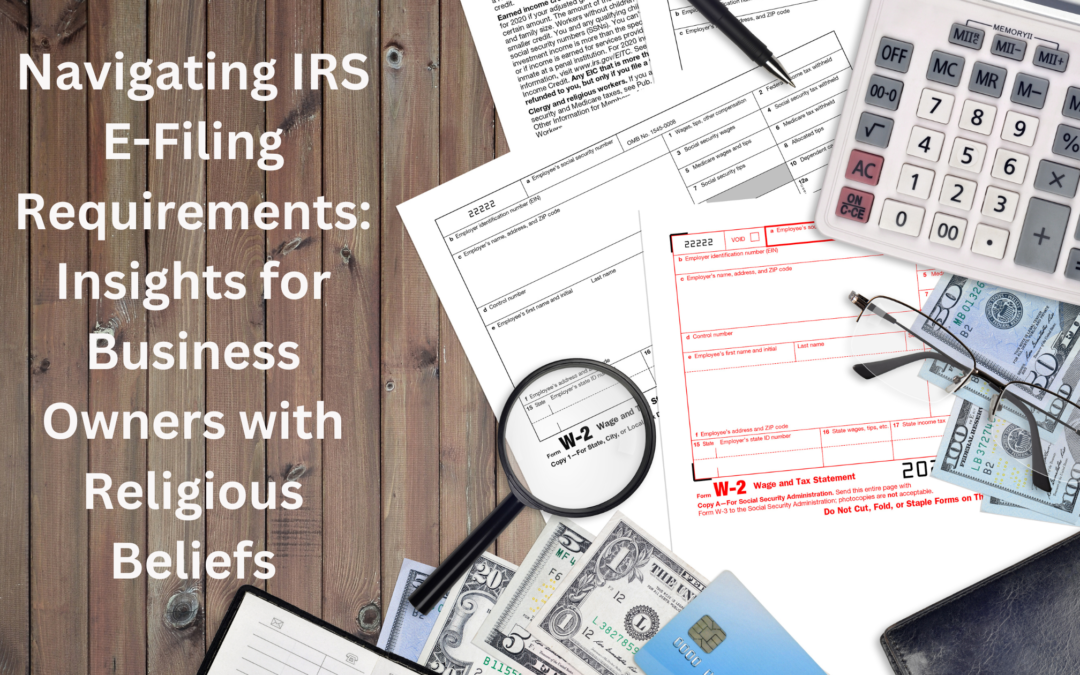As a business owner, you may be interested to know that the Internal Revenue Service (IRS) recently released Notice 2024-18, offering valuable insights into how you can navigate the requirement to electronically file income tax forms, especially if it conflicts with your religious beliefs.
In this notice, the IRS delves into the availability of administrative exemptions for certain returns and documents that need to be filed electronically. Specifically, they address the procedure for requesting a waiver from electronically filing income taxes on Forms 1120, 1120-S, 1120-F, and 1065 for partnerships.
Furthermore, the notice provides details on publications related to unsuccessful attempts to electronically file certain forms using IRS systems, giving you a comprehensive understanding of the process.
This notice replaces previous guidance from 2010 and modifies guidance from last August, reflecting updates in regulations and procedures. For instance, the Taxpayer First Act of 2019 brought about changes to the Tax Code, lowering the threshold for the e-filing requirement. This means that any taxpayer filing at least 10 returns during a calendar year must now file them electronically, as opposed to the previous threshold of 250 returns per year.
Additionally, the Treasury Department and the IRS published final regulations in T.D. 9972 last February, outlining the e-file requirements for businesses starting Jan. 1, 2024. These regulations include provisions for hardship waivers and administrative exemptions, affording some relief for those facing challenges with electronic filing.
If you qualify for a religious exemption from e-filing, you can inform the IRS in advance by filing a Form 8508, Application for Waiver from Electronic Filing of Information Returns. However, for certain forms like 1120, 1120-F, 1120-S, and 1065, simply filing on paper and clearly indicating “Religious Exemption” at the top of the return suffices.
It’s important to note that filers claiming the religious exemption for these forms do not need to follow the e-filing waiver procedure that applies to others, which requires advance application and approval from the IRS.
The updated e-file regulations empower the IRS to grant waivers in cases of undue hardship. Details on seeking a hardship waiver can be found in various IRS resources, including revenue procedures, publications, forms, and instructions. These provisions provide flexibility and support to taxpayers navigating the complexities of electronic filing requirements.
IRS issues guidance on religious exemptions from business e-filing | Accounting Today
